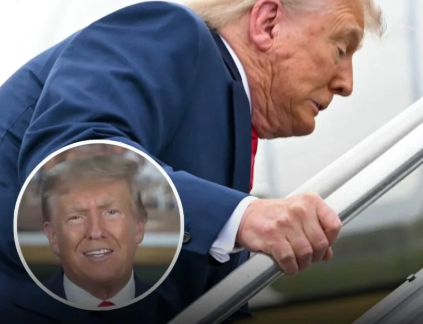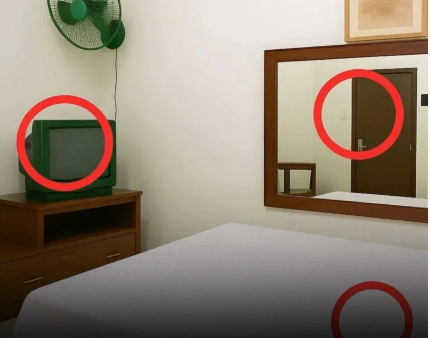In the world of tattoos, where many people express themselves through ink, one father’s decision to remove his full-body tattoos for the sake of his young daughter has sparked a conversation about parental love, personal change, and the impact tattoos can have on family dynamics. Tattoos, often seen as a form of self-expression or personal art, are a permanent decision. However, for this father, the tattoos that once symbolized his past no longer represented the future he envisioned for himself and his daughter. This profound and life-altering decision raises questions about identity, priorities, and the lengths parents will go to for their children’s well-being and future.
This article will explore the emotional, physical, and social factors behind the father’s choice, the challenges he faced in making such a monumental change, and how it reflects broader societal trends regarding tattoos and family life.

The Rise of Tattoo Culture: Self-Expression or Life Choice?
Tattoos have long been a symbol of personal expression, but in recent decades, they have evolved into a mainstream phenomenon. From small, meaningful symbols to full-body art, tattoos have become a way for individuals to express their identity, commemorate significant events, or simply engage in a form of self-adornment. People from all walks of life have embraced tattoos, and with that embrace has come a shift in how tattoos are perceived. Once considered taboo or rebellious, tattoos are now more accepted, with individuals in corporate jobs, the media, and even government working with visible ink.
However, despite the increased acceptance of tattoos, they can still carry significant societal implications. Tattoos may not always be viewed as professional, and people with full-body tattoos may face judgment or prejudice in certain settings. For parents, there is an added layer of responsibility: how their appearance might affect their children’s lives and futures. This is a dilemma faced by many tattooed parents, especially those who may have gotten tattoos in their younger years when they were less concerned with long-term consequences.
The Emotional Journey of a Father: From Ink to Love
For this father, the decision to remove his tattoos was deeply personal. It was a decision that came from a place of love and commitment to his young daughter. Like many fathers, he wanted to be a positive role model for his child and provide her with a future free from the stigma and judgment that his full-body tattoos might bring. While tattoos have become more mainstream, full-body tattoos—particularly those that cover the neck, face, and hands—can still carry a stigma. They can be associated with rebellion, a disregard for societal norms, or even criminal activity, though these associations are often misplaced.
This father, in his journey of fatherhood, realized that his tattoos were no longer aligned with the person he wanted to be for his daughter. He saw himself as more than the man his tattoos represented—he was a father who wanted his daughter to have the best opportunities in life. He wanted to ensure that she would never have to face unnecessary prejudice because of his appearance. His tattoos were a product of his past—a past that no longer defined him but still shaped how others saw him.
The decision to undergo tattoo removal was not an easy one. Full-body tattoos, especially those covering the arms, torso, and face, require significant time, effort, and pain to remove. The procedure often involves multiple sessions of laser treatment, and the process can take years to fully complete. However, for this father, the pain of tattoo removal was worth the long-term benefits it would provide for both himself and his daughter.
The Motivation Behind the Decision
At the heart of this father’s decision is his deep love for his daughter. Parenthood often requires difficult decisions, and this father’s choice to remove his tattoos was driven by his desire to be a role model for his daughter, free from the associations his tattoos carried. He realized that as his daughter grew older, she would begin to understand and form opinions about the world around her. As much as he loved his tattoos as part of his personal history, he wanted to ensure that his appearance would not impact her experiences in a negative way.
There’s also the concern of judgment and societal perception. Despite the increased normalization of tattoos, there is still a bias against heavily tattooed individuals, particularly in professional settings. For a young girl, having a tattooed father could lead to questions, assumptions, or even bullying. This father wanted to avoid subjecting his daughter to any social difficulties related to his appearance. Removing his tattoos was his way of ensuring that his daughter would not face judgment based on his past decisions.
The emotional burden of living with tattoos that no longer aligned with his identity as a father may have also been a contributing factor. Tattoos are permanent, but people change over time. This father had likely evolved emotionally, and his tattoos—once a source of pride—had become a reminder of a past he no longer identified with. To be the kind of father he wanted to be, he had to reconcile his past with his present and future.
The Tattoo Removal Process: Pain and Persistence
Tattoo removal is a challenging and often painful process. The procedure typically involves the use of high-powered lasers that target ink particles in the skin. The laser breaks down the ink, which is then absorbed by the body. While effective, laser tattoo removal can be painful, especially on areas with a lot of nerve endings, such as the face or neck. Additionally, it requires multiple sessions, spaced several weeks apart, to achieve the desired result.
For this father, the decision to undergo tattoo removal required not only physical endurance but also financial and emotional commitment. The cost of full-body tattoo removal can be substantial, with each session costing hundreds of dollars. The time commitment is also significant, as the process can take years to complete, depending on the size and color of the tattoos. For a busy father, making time for these appointments while juggling parental duties and work responsibilities was an added challenge.
However, despite the difficulties, the father was determined to go through with it. He understood that the process would take time, but the payoff would be worth it for his daughter’s future and their family’s well-being. This perseverance shows just how deeply he cares for his child and his commitment to being the best parent he can be.
Impact on Family Dynamics and Society
The decision to remove full-body tattoos also speaks to the larger issue of how tattoos affect family dynamics. For many tattooed parents, the presence of tattoos can impact their relationships with their children, their children’s peers, and even extended family. While tattoos can be a form of self-expression, they can also lead to feelings of self-consciousness or stigma, especially in environments where tattoos are not as accepted.
This father’s choice highlights a shift in the cultural perception of tattoos. While tattoos have become more mainstream in certain circles, there are still challenges to overcome. Parents who have tattoos may feel the need to hide them or even remove them to protect their children from potential judgment. In some ways, this reflects society’s ongoing struggle to fully accept people with tattoos, particularly those with visible or extreme tattoos.
The father’s decision also shines a light on the lengths to which parents are willing to go for their children. Parenthood often requires sacrifices, and in this case, the sacrifice was personal—this father was willing to remove a part of himself that had once been important to him for the sake of his child’s happiness and future. It’s a powerful statement about the priorities of parents and the depth of love they have for their children.
Lessons Learned and the Road Ahead
The father’s decision to remove his tattoos teaches valuable lessons about the fluid nature of identity and the importance of prioritizing family. It’s a reminder that people are constantly evolving, and sometimes, the choices we make in one chapter of our lives may not align with who we are in the next. Tattoos, which were once a symbol of self-expression, may no longer represent the same person as they did in the past.
It also underscores the importance of considering the impact our decisions can have on our loved ones, particularly our children. In this case, the father’s desire to protect his daughter from potential stigma and provide her with a more open future speaks to the sacrifices many parents are willing to make for their children’s well-being.
As the tattoo removal process continues, this father’s journey is a testament to the lengths parents go to for their children. It is a reminder that love, self-awareness, and the desire to create a better future are powerful motivators in making life-changing decisions.
Conclusion: A Father’s Love and the Power of Change
The decision of a father to remove his full-body tattoos for the sake of his young daughter is a story that resonates with many. It reflects the powerful influence of parental love and the willingness to make personal sacrifices for the sake of a child’s future. It also raises important questions about the societal perceptions of tattoos, particularly when they intersect with family dynamics and social expectations.
This father’s journey of tattoo removal may be long and difficult, but it is driven by the kind of love and determination that defines the essence of parenthood. Ultimately, his decision represents more than just a physical transformation—it is a profound act of selflessness that exemplifies the sacrifices parents make in order to ensure their children’s happiness, success, and future.



